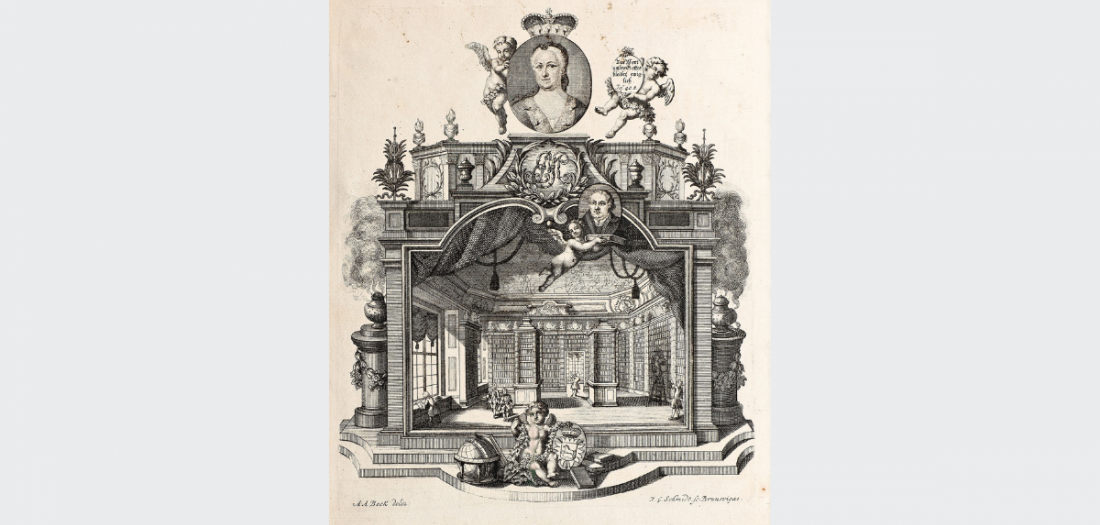Dr. Joëlle Weis interviewed by SWR Kultur
Do women read differently? Researchers compare the libraries of female princes in the 18th century
07.08.2024 | General, Project News

SWR Kultur interviews Dr. Joëlle Weis about the new long-term project “Princesses' Libraries and Knowledge Practices in 18th-Century Germany: Reconstruction, Function, and Significance”, which the Herzog August Library in Wolfenbüttel and the Trier Center for Digital Humanities will be pursuing over the next twelve years.
About the project:
In recent years, libraries of princesses have increasingly attracted the attention of researchers, but a systematic examination of the collections, which are scattered throughout the German-speaking area, is still lacking. This project aims to address this gap by developing a digital platform to comprehensively reconstruct the book collections of princesses and enable a qualitative analysis of their book-related knowledge practices. The basis of the investigation comprises 99 libraries that have been identified in recent years. These libraries are documented in historical library and auction catalogs or other sources such as letters and diaries. In many cases, the original books can still be found in libraries today. A famous example is the Anna Amalia Library in Weimar, which houses the books of the eponymous princess. Through these volumes, reading traces such as underlining and notes can be discovered, allowing conclusions to be drawn about the reading behavior of the princesses.
To obtain comparable and meaningful data on the book ownership of princely women, the platform will link bibliographic information of the examined books with copy-specific information, such as provenance marks or reading traces, and biographical data into a knowledge graph. The systematic reconstruction of the libraries of princely women will for the first time enable quantifiable and comparative statements about their book ownership and book practices.
Bibliographic information of the examined books will be supplemented with copy-specific information (e.g., provenance marks or reading traces) and biographical data of the collectors. This approach will allow the exploration of knowledge and communication networks of princely women beyond individual protagonists for the first time. Based on the compiled data, six thematic monographs will be produced during the project's duration. This large-scale project will structure and publish the comprehensive data from 99 private libraries, making them digitally available for free use by researchers. Additionally, the data pool of the digital research platform can be expanded by external data providers.

